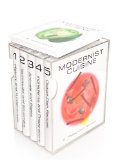Happy first day of school! I don't think I will ever NOT feel excited on the first day of school--at least, I hope I won't. Everyone is happy to see old friends and filled with good intentions for starting off the school year right. I had a whole "welcome back" post planned, but an
Inside Higher Ed article came out today that I just have to discuss. And in a way, it is a good welcome back discussion!
The article, entitled "
What Students Don't Know," has been making the rounds on all my professional listservs and Facebook sites today; after quickly skimming it, I knew why. I'd be interested to hear what you (students and faculty!) think of the points made in the article--leave a comment at the end of this post if you have an opinion or insight!
Librarians know that we're underutilized (there are so many ways we can help!), and this article attempts to understand why that is, and what we can do about it. "Students rarely ask for help, even when they need it," the article's author, Steve Kolowich, summarizes from an ethnographic study conducted at several universities in Illinois. [
Really? They needed an ethnographic study for that?] Fortunately, the study was much more complex than this, and indicated several good reasons why students don't ask for help and several solutions for this. I'll not cover everything discussed in the article--you should definitely read it yourself. However, there were some major points that really resonated with me:
First of all, the study found that many librarians and faculty members overestimate students' research skills. In general, I don't think high expectations are a bad thing. We have smart students here at Virginia Tech, and I know that they are very capable of pursuing in-depth and complex research. However, the article points out one downside to this way of thinking: isolating and alienating those that we are trying to help by not offering realistic or efficient support strategies. The study found that a "gulf" exists between students and librarians because librarians may not be offering the kind of help that students need!
So, what do students need? According to the article, students need practical research suggestions rather than idealistic research discussions. So, should I stop helping students learn about library databases and stop expecting them to to perform thorough research? Not at all! As one librarian phrased it, "It's not about teaching shortcuts [in research], it's about teaching them not to take the long way to a goal." I didn't mention this before, but I was one of those undergraduate students who never asked for help, even when I needed it. And I frequently took the "long way" in my research projects. Who knew that a reference librarian would have been able to save me time? I could have avoided many long hours sitting on the floor, in the middle of the stacks browsing through books if someone had just shown me how
subject headings work. Similarly, I could have taken advantage of the wealth of information available through my library, rather than just sticking to the one database I knew (JSTOR).
Basically, the article seemed to suggest that librarians have an image problem on college campuses. And that's hard to argue with, since the image that I always had of librarians was intimidating, and kind of scary. As an undergrad, I was afraid of being overwhelmed by information--which may have happened, since librarians want to help students so badly that they often overwhelm them. This article, though, has reminded me that I need to keep student research in perspective--get a sense of what they need to succeed, and then balance thoroughness with a sense of efficiency. Similarly, as a librarian, I need to put myself OUT there and meet people where it might be easier for them to talk to me. This is one reason that I started
HNFE Librarian Office Hours in Wallace Atrium--a way of meeting students and faculty in their own space.
This is a lot for the first day of school. If there's an overall takeaway from this piece, it's that librarians really can help, and that we need to make it easier for you to ask for, and then receive, that help. And that's what I look forward to doing with you this semester!













































